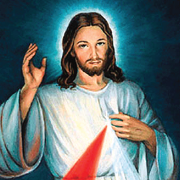Penance
This is the Sacrament in which sins committed after Baptism are forgiven. It results in reconciliation with God and the Church. (US Catholic Catechism for Adults, Glossary)
和解圣事有四个步骤:我们为自己的罪孽感到悔恨,并转变心意,改变自己的行为方式。我们向牧师忏悔我们的罪孽和人类的罪恶。我们接受宽恕(赦免),并赦免我们的罪孽。我们庆祝上帝对我们永恒的爱,并承诺过基督徒的生活。罪孽伤害了我们与上帝、我们自己和他人的关系。正如《教义问答》所述:
罪人伤害了上帝的荣誉和爱、他自己的人性尊严……以及教会的精神福祉,而每个基督徒都应该是教会的活石。在信仰的眼中,没有比罪更严重的邪恶,也没有比罪对罪人本身、对教会和对整个世界更严重的后果。(CCC 1487、1488)
A mature understanding of sin includes reflecting upon our thoughts, actions and omissions as well as examining the patterns of sin that may arise in our lives. With contrite hearts, we are also called to reflect upon the effects of our sins upon the wider community and how we might participate in sinful systems.
Contrition and conversion lead us to seek a forgiveness for our sins so as to repair damaged relationships with God, self, and others. We believe that only ordained priests have the faculty of absolving sins from the authority of the Church in the name of Jesus Christ (CCC 1495). Our sins are forgiven by God, through the priest.
The Spiritual effects of the Sacraments of Reconciliation include:
- reconciliation with God by which the penitent recovers grace
- reconciliation with the Church
- remission of the eternal punishment incurred by mortal sins
- remission, at least in part, of temporal punishments resulting from sin
- peace and serenity of conscience, and spiritual consolation
- an increase of spiritual strength for the Christian battle (CCC 1496)
Individual confession with a priest is the principal means of absolution and reconciliation of grave sins within the Church. The Sacrament of Reconciliation frees us from sinful patterns of behavior and calls us to complete conversion to Christ. Reconciliation heals our sins and repairs our relationships.


